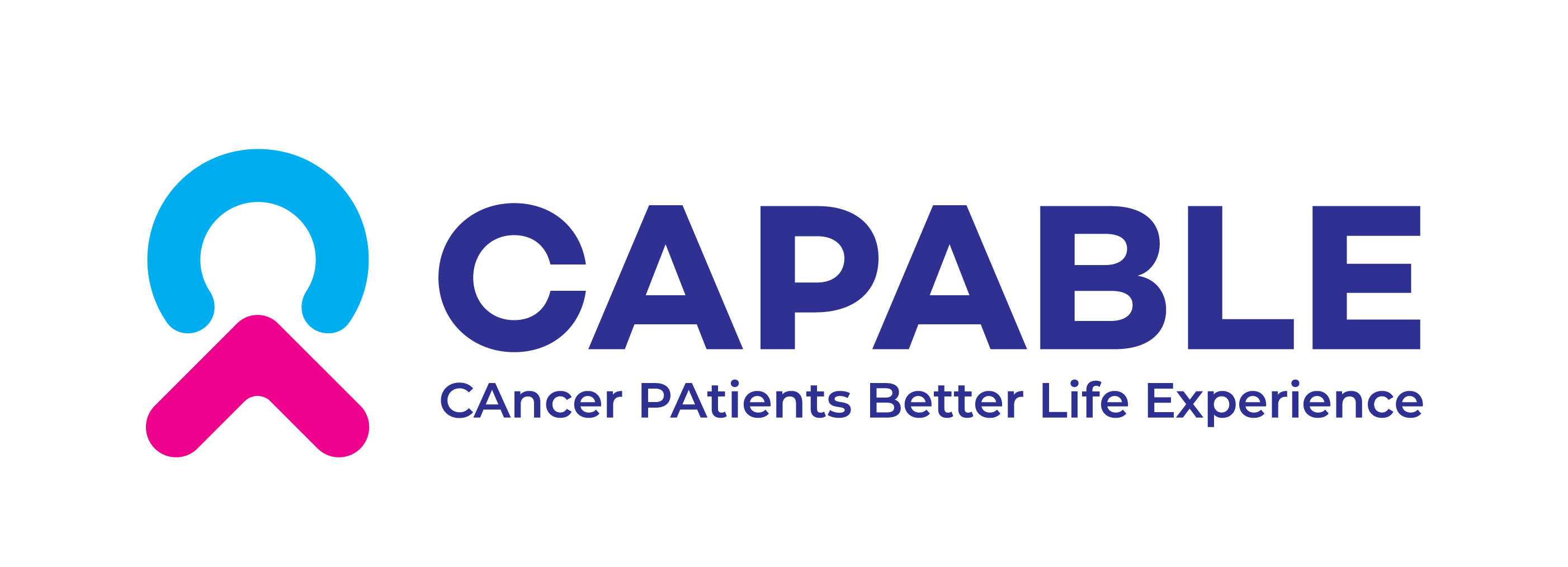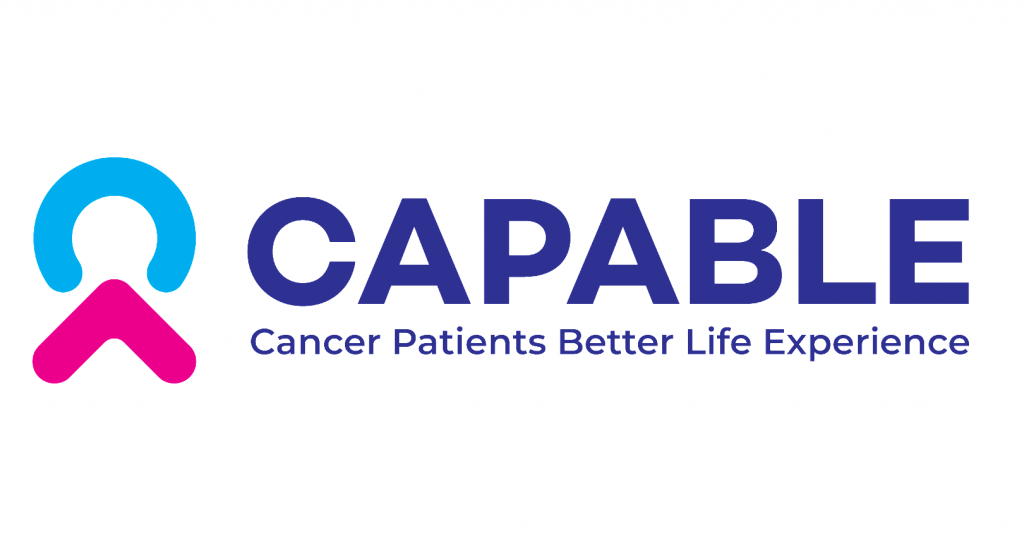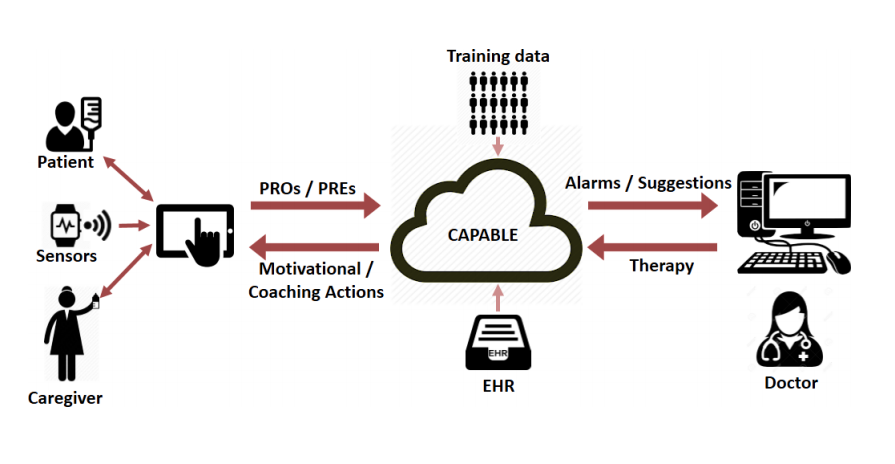



pexels-gotta-be-worth-it-919291
pavia-bridge
Rome
capable_rgb-01





pexels-gotta-be-worth-it-919291
pavia-bridge
Rome
capable_rgb-01

What is Capable Project?
The overall aim of CAPABLE is to combine the most advanced technologies for data and knowledge management with a sound socio-psychological approach in order to develop a coaching system for improving the quality of life of cancer home patients. The system aims at early detecting and managing cancer-related issues and at satisfying the needs of patients and their home caregivers.
Demo of the final version of the CAPABLE system is now available. Please see the Demo page for more details.
CAPABLE project received funding from the European Union’s Horizon 2020 research and innovation programme under grant agreement No 875052.
Latest News
- PhysicAI Garden on ShowMarch 9, 2025PhysicAI Garden is on show as part of an exhibition called Plant Power in […]
- ATC-to-RxNorm Paper Published in IJMIJanuary 2, 2025Our paper on comparing the ATC-to-RxNorm mappings in various vocabularies, […]
- Reward Ontology Paper Published in JBIMay 19, 2024Our paper on the compliance and reward ontology (CaRO), titled How can we […]
- Final Presentation of PhysicAI GardenApril 17, 2024Today, during the 3rd and final periodic review, the CAPABLE artists in […]
- Success Story Interview with Prof. QuagliniMarch 18, 2024Professor Silvana Quaglini was interviewed by the Health-NCP-Net 3.0 as […]
OVERALL GOAL

To develop a support system for improving the quality of life of cancer home patients by combining technologies for data and knowledge management with socio-psychological models and theories
MAIN OBJECTIVES
User Experience
- Identifying new patients’ and home caregivers’ needs
- Promoting patients’ engagement
- Improving patients’ compliance to treatment
- Facing patients’ emotional issues
- Supporting the use of computer-interpretable guidelines (CIGs) for healthcare professionals
- Improving clinical workflows
Technological
- Promoting data management through standard terminologies, data modeling, and FAIR principles
- Integrating (big) data coming from different sources
- Integrating data, knowledge and AI
- Using Health Technology Assessment as the basis for system development
Scientific
- Identifying gaps between clinical guidelines and patient needs
- Identifying new adverse effects
- Developing new models of disease course
- Managing Multimorbidity through CIG-based decision support
- Extending guideline formalization languages to include predictive models

